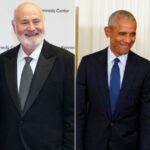
While pundits, politicians and the press have long expressed outrage over attacks on judges by former President Donald Trump, many are now attacking any judge who delays any trial of Trump before the election. Democrats have accused Judge Aileen Cannon of being politically compromised, if not conspiratorial, in her delay of the Florida trial over the mishandling of classified documents. Yet, there is ample reason for the delay that many of us anticipated in this type of case when it was filed.
For months, many of us have said that we doubt that this type of trial could be held on the rapid schedule demanded by Special Counsel Jake Smith. Smith has repeatedly sought to curtail trial review and even appellate rights of Trump to advance his schedule.
His office has made convicting Trump before the election the overriding objective of its motion — a sharp departure from past Justice Department efforts to avoid trials to influence elections.
As a criminal defense counsel, I have handled classified material cases and they are notoriously slow. Smith could have prosecuted this case in the shorter time frame if he simply charge obstruction. That would have also eliminated the glaring contrast with the handling of the Biden investigation into the current president’s retention and mishandling of classified material.
Smith decided to charge an array of document charges related to classified material. The defense must have access, review, and can appeal issue related to the classified procedures. Yet, Smith wanted both the array of document charges and a fast track to trial. The Supreme Court has agreed with Cannon that Smith desire to secure a conviction before the election is not the overriding consideration.
Judge Cannon is faced with recent admissions that the government mixed up files in the boxes and staged the famous photos of document strewn over a floor with classified jackets.
Most importantly, disputes over the relevant documents continues as expected in the case.
Nevertheless, leading democrats are denouncing Cannon as a partisan hack.
Sen. Sheldon Whitehouse (D-R.I.), the chair of the Senate Judiciary Committee’s subcommittee on federal courts and oversight subcommittee, said accused Cannon of “deliberately slow-walking the case.” Ignoring the fact that similar cases have taken much longer to go to trial, Whitehouse simply declared “it is hard for me not to reach the conclusion that this [judge] is deliberately slow-walking the case to put it into a position where should [Trump] be elected, he can order that the investigation and prosecution be terminated.”
His colleague Sen. Chris Coons (D-Del.) insisted that Cannon was “managing this case in a way that is making it highly unlikely that it will be resolved in a timely fashion.”
Coons added “Justice deferred is often justice denied.” It is a bizarre statement. Classified documents cases routinely take longer to go to trial. The alternative is to cut off the ability of the defense to fully review the documents and review objections for resolution before trial. Yet, because the defendant is Trump and these Democrats want the trial to influence the election, such defense protections are now evidence of judicial bias.
They, of course, ignore that Cannon has ruled repeatedly against major Trump motions in the case.
Sen. Peter Welch (D-Vt.), a member of the Judiciary Committee, said Cannon’s “at it again, doing everything she can to delay.”
Sen. Richard Blumenthal (D-Conn.), offered the most telling line. He said “I question whether this judge understands the magnitude or the legal import of this trial.”
Indeed, it is the timing as much as the charges that makes this so important to the Justice Department and the Democrats. Smith has crafted this case to impact the election and the failure of the court to support that effort is apparently grounds for recusal.
Blumenthal called for such a motion before the window is lost before the election: “It’s a classic dilemma for justice that a particular judicial officer may be conducting a trial that could be better done by somebody else.”
Despite the statement of his colleague Coons, this is a case where justice delayed is justice.
While pundits, politicians and the press have long expressed outrage over attacks on judges by former President Donald Trump, many are now attacking any judge who delays any trial of Trump before the election. Democrats have accused Judge Aileen Cannon of being politically compromised, if not conspiratorial, in her delay of the Florida trial over the mishandling of classified documents. Yet, there is ample reason for the delay that many of us anticipated in this type of case when it was filed.
For months, many of us have said that we doubt that this type of trial could be held on the rapid schedule demanded by Special Counsel Jake Smith. Smith has repeatedly sought to curtail trial review and even appellate rights of Trump to advance his schedule.
His office has made convicting Trump before the election the overriding objective of its motion — a sharp departure from past Justice Department efforts to avoid trials to influence elections.
As a criminal defense counsel, I have handled classified material cases and they are notoriously slow. Smith could have prosecuted this case in the shorter time frame if he simply charge obstruction. That would have also eliminated the glaring contrast with the handling of the Biden investigation into the current president’s retention and mishandling of classified material.
Smith decided to charge an array of document charges related to classified material. The defense must have access, review, and can appeal issue related to the classified procedures. Yet, Smith wanted both the array of document charges and a fast track to trial. The Supreme Court has agreed with Cannon that Smith desire to secure a conviction before the election is not the overriding consideration.
Judge Cannon is faced with recent admissions that the government mixed up files in the boxes and staged the famous photos of document strewn over a floor with classified jackets.
Most importantly, disputes over the relevant documents continues as expected in the case.
Nevertheless, leading democrats are denouncing Cannon as a partisan hack.
Sen. Sheldon Whitehouse (D-R.I.), the chair of the Senate Judiciary Committee’s subcommittee on federal courts and oversight subcommittee, said accused Cannon of “deliberately slow-walking the case.” Ignoring the fact that similar cases have taken much longer to go to trial, Whitehouse simply declared “it is hard for me not to reach the conclusion that this [judge] is deliberately slow-walking the case to put it into a position where should [Trump] be elected, he can order that the investigation and prosecution be terminated.”
His colleague Sen. Chris Coons (D-Del.) insisted that Cannon was “managing this case in a way that is making it highly unlikely that it will be resolved in a timely fashion.”
Coons added “Justice deferred is often justice denied.” It is a bizarre statement. Classified documents cases routinely take longer to go to trial. The alternative is to cut off the ability of the defense to fully review the documents and review objections for resolution before trial. Yet, because the defendant is Trump and these Democrats want the trial to influence the election, such defense protections are now evidence of judicial bias.
They, of course, ignore that Cannon has ruled repeatedly against major Trump motions in the case.
Sen. Peter Welch (D-Vt.), a member of the Judiciary Committee, said Cannon’s “at it again, doing everything she can to delay.”
Sen. Richard Blumenthal (D-Conn.), offered the most telling line. He said “I question whether this judge understands the magnitude or the legal import of this trial.”
Indeed, it is the timing as much as the charges that makes this so important to the Justice Department and the Democrats. Smith has crafted this case to impact the election and the failure of the court to support that effort is apparently grounds for recusal.
Blumenthal called for such a motion before the window is lost before the election: “It’s a classic dilemma for justice that a particular judicial officer may be conducting a trial that could be better done by somebody else.”
Despite the statement of his colleague Coons, this is a case where justice delayed is justice.
Loading…





